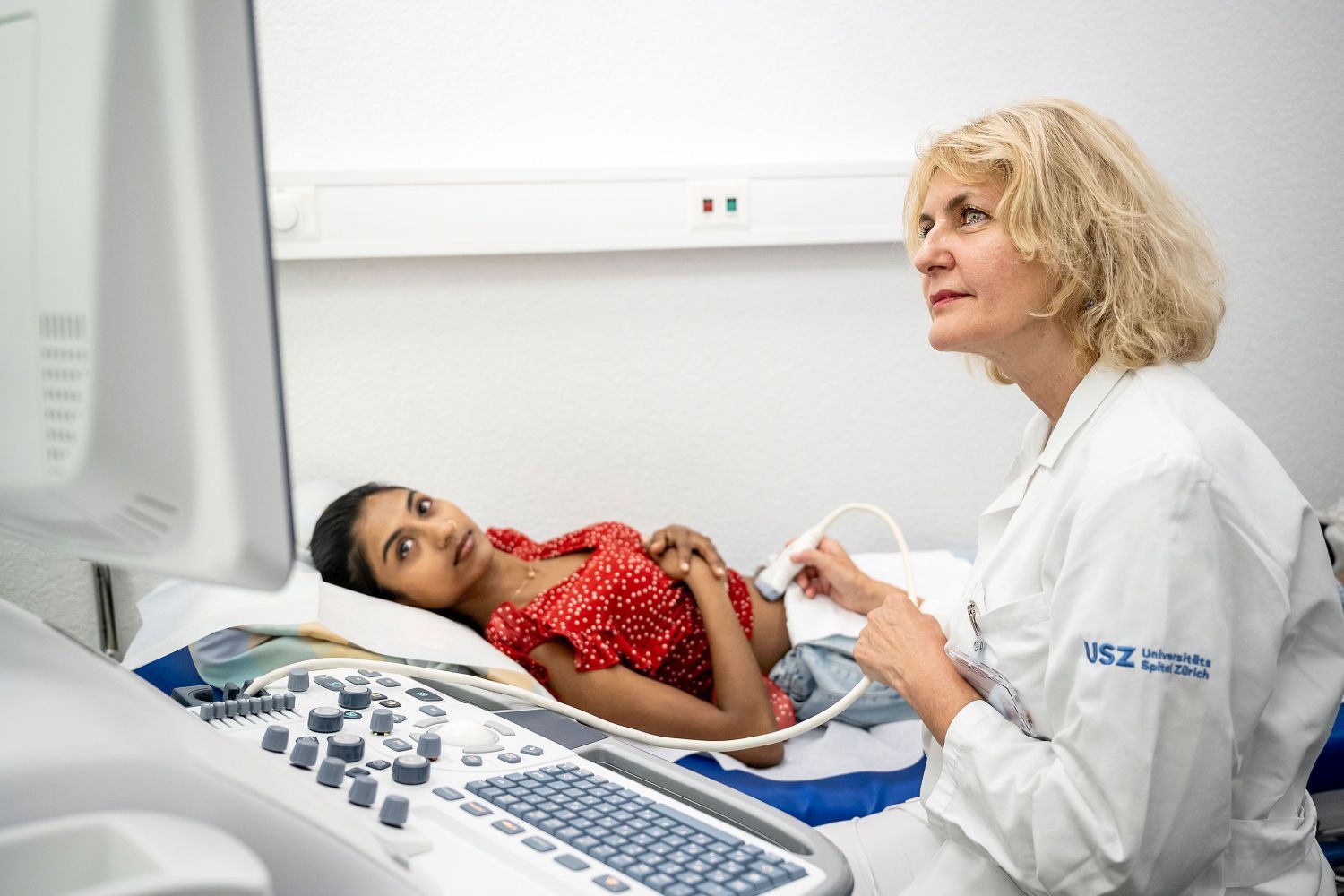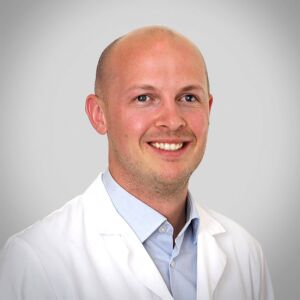Severe pain every month during menstruation, an unfulfilled desire to have children or diffuse chronic abdominal pain - endometriosis can take many different forms.
It is estimated that six to ten percent of all women of childbearing age suffer from endometriosis. What characterizes this female disease? Cells similar to the lining of the uterus (endometrium) settle on the ovaries, bladder, peritoneum, intestines or other internal organs. The cell tissue embedded there grows and bleeds with each cycle, which can lead to inflammation and pain – endometriosis lesions release molecules that activate pain fibers. “The pain experienced by those affected during menstruation is extremely severe and can become chronic,” says Julian Metzler. The senior physician at the Department of Gynecology and his team see 600 patients with endometriosis every year in the endometriosis consultation at the USZ. “It often takes several years before a diagnosis is made,” he says.
Typical symptoms are initially cyclical abdominal pain radiating to the back and legs, sometimes also digestive problems or fatigue, pain during urination, bowel movements or sexual intercourse. “Endometriosis is one of the main reasons why pregnancy doesn’t work out,” says Brigitte Leeners, Director of the Reproductive Endocrinology Clinic. The scarring can restrict the mobility of the fallopian tubes or obstruct them so that sperm can no longer get through. What’s more, endometriosis lesions release substances that may affect the implantation and quality of the eggs.
More information about endometriosisUnclear origin, many characteristics
The exact development of endometriosis is still being researched and there are various theories. The mucous membrane enters the abdominal cavity due to a reflux of menstrual blood through the fallopian tubes, adheres there and an endometriosis lesion develops. “Immunological and epigenetic factors are also being discussed, such as the fact that healthy cells develop into endometriosis as a result of cumulative cell damage,” says Julian Metzler. Today, endometriosis is usually diagnosed using anamnesis and ultrasound. Sometimes an MRI or laparoscopy is necessary. A saliva test has also been available since 2022. “We only use this selectively, for example, if another illness is also a possibility,” explains Julian Metzler.


